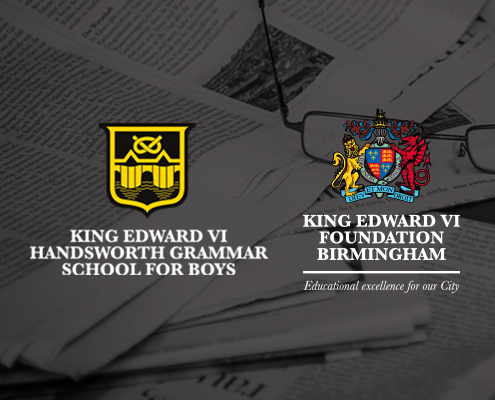Focus on Education June 2023
In Shakespeare’s play Macbeth, King Duncan is planning for the succession, the time when he will no longer be King, and the intention is that his son Malcom will succeed him. The two other key characters are Macbeth, a brave captain in the King’s army and his friend Banquo. For those who know the play, Duncan is saying that he has planned to develop both Macbeth and Banquo and they, in turn, talk about their devotion to serving the King, being loyal to him and protecting him. If you read Macbeth, you will find that this isn’t quite how things play out.
On Saturday May 6th, we saw something that I don’t think anyone reading this FOE has ever experienced before, the Coronation of our King, Charles III. His mother, Queen Elizabeth II will have planned carefully for this succession and the aim will, I suspect, be that there is the smoothest of transitions from the reign of one to another as we are now seeing – unlike the goings on in Macbeth, witches and the like!
At the coronation His Majesty The King was crowned alongside Her Majesty The Queen Consort in a ceremony that has remained essentially the same over a thousand years. For the last 900 years, the English coronation has usually taken place at Westminster Abbey in London. The service has been conducted by the Archbishop of Canterbury, since the Norman Conquest in 1066.
During the ceremony, the Sovereign took the coronation oath which involved The King promising to rule according to the law, to exercise justice with mercy and to maintain the Church of England. The King was then ‘anointed, blessed and consecrated’ by the Archbishop of Canterbury, seated in King Edward’s chair (which was made in 1300). He received the orb and sceptres – the orb being part of the Crown Jewels and a symbol of the power of God and the sceptres represent the power of the Sovereign. After this, the Archbishop placed St Edward’s Crown on the King’s head – the crown which was made for Charles II in 1661 as a replacement for the medieval crown which had been melted down in 1649 following the execution of his father Charles I.
As Monarch, King Charles III will not have the ability to pass laws, which is the responsibility of Parliament, but he is Head of State and indeed Head of Church of England. Recognising that modern Britain is a multi-faith society, other faiths featured in the Coronation for the first time which was a significant act of inclusion and diversity.
So, I hope you have taken the opportunity to watch the ceremony or at least some parts of it, which I suspect will not happen too often in our lifetimes. As suggested by the details, the ceremony is a continuation of what has happened with Kings and Queens for centuries and even though the world has changed enormously in that time, the passing of one Monarch to the next has happened in a similar way and throughout his life, Prince Charles will have known that his destiny was, one day, to become King Charles. The same can be said for Prince William who played a significant role over the Coronation weekend.
In contrast, last week I was chatting to a Sixth Former about the courses that they might like to study at University. We talked about where these might lead and there were no fixed plans…indeed the plan was to decide what interested this student most, find the most interesting relevant course at the best university and then take things from there. There would be plenty of options, their career could be in the UK or another part of the world. Exactly what that career was, remained to be seen and the area of work when this individual graduated was unlikely to stay the same throughout their working life. There would be plenty of opportunities and the student would be free to take those opportunities.
And that approach will, I hope, apply to many of us. If we work hard, gain the best qualifications we can, develop interests and skills, doors will be open to us – we will have choices. Indeed, a benefit of education is that it allows us to recognise the options available and equips us to choose the best path for us as an individual – whatever that is.
That is very different to the life that King Charles has had. For all the privilege he has enjoyed, he has always known that one day his path in life would bring him to the Coronation and the formal investiture of him as Monarch. We have more freedom to choose the paths we take, to pursue our own interests to work in areas that appeal to us.
And that perhaps is the point. Sometimes we have opportunities to do things completely differently and to forge brand new paths. On other occasions, we choose, or are chosen, to follow in the footsteps of others. Whichever it is, we perform best, when we do our very best – when we try our hardest to fulfil our commitments as well as we can, doing things for the right reasons. The American educator and author of The 7 Habits of Highly Effective People, Stephen Covey, stated “Moral authority comes from following universal and timeless principles like honesty, integrity … treating people with respect.” These are attributes that we model as school leaders and encourage the young people in our care to do the same – clearly there are always lessons to be learned whatever your role and status. Food for thought.
Stay safe and well.
Be kind to yourself and others.
Best wishes,
Dr Bird







